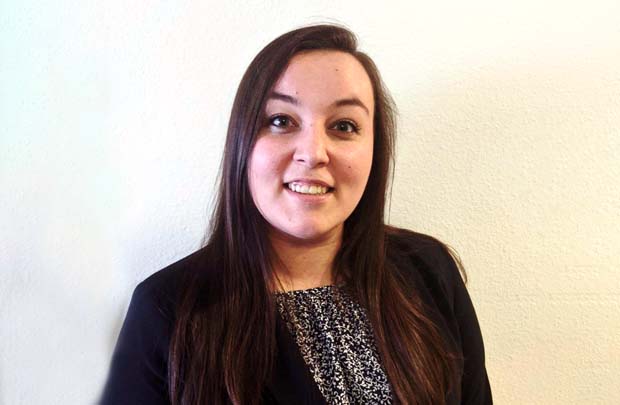
Julia Robison works for an agency that specializes in treatment level foster care. She works primarily with children with high needs and parents interested in fostering and adopting them.
A mother Julia worked with (and who we featured in a 2018 adoptions story on our blog) suggested that we feature Julia as an Outstanding Caseworker. She wrote:
“Julia knows the kids and families in her caseload inside and out. She has extensive knowledge of trauma and how it influences children’s behavior. This knowledge enables her to jump in and provide support during a crisis…no matter how big or small. Julia is dependable, smart, and extremely caring. She provides honest feedback to both foster children and foster families…Julia is the best caseworker I have ever had. The foster/adoption world is extremely lucky to have her.”
This mother who wrote to us said you have an extensive knowledge of trauma. Why is that important?
Every single child who comes to us has an extensive trauma background. Part of my job is to help children process their past experiences and move through that trauma so that they can heal and thrive in a family.
I also encourage foster parents to explore their own trauma and triggers—to be aware of what they’ve been through and be able to identify their own triggers. You don’t have to have been through horrendous experiences to have a trauma background that is important to acknowledge. Doing that work makes people more effective caregivers to children and prevents them from burning out.
How do you help families like this one?
Through education and support.
I help families learn as much as they can about the child’s background, the reasons behind their actions, and therapeutic ways to respond to them.
I try to prevent parents from taking their children’s behavior personally. Because it’s not about them. It’s about the child trying to meet a need they are experiencing at the time. Approaching a situation with this understanding is particularly helpful when a parent is de-escalating an emotional situation.
Of course, even with knowledge and preparation, sometimes parents need help! My agency offers 24/7 on-call services to foster families so that they do not feel like they are doing this hard job all by themselves.
What attracted you to social work and to working with a population with higher needs?
I’ve always been very interested in psychology, in what makes people who they are and the things that make each of us different.
In college and graduate school I studied a mix of child and legal psychology. When I graduated, I volunteered as a court-appointed special advocate (CASA) and took a job working with teenagers in a group home. That’s when I fell in love with working with kids with higher needs. Because even though they are at a disadvantage, they are still expected—and deserve—to do the things other kids do—make friends, succeed in school, play sports, etc. I wanted to help kids in foster care find their voice and live the life they are entitled to live.
What is your advice to parents who are considering foster care and adoption?
My best suggestion is to check your expectations and have them grow with the child. Every child has unique abilities. Meet them at their level, then help them realize potential and grow it over time. You don’t need to live in a mansion or make a million dollars to be a great foster parent. People who care about children, understand the impact of trauma, and are willing to put in the work make excellent foster parents.
Be honest and accepting. These children have been through trauma and possibly through disrupted placements. They’ve very likely been lied to somewhere along the way. Tell them the truth.
Help children realize what is out there! This is really important for foster parents to do. Children only know what they’ve experienced. You can show them what is possible and help them dream bigger. Even if they are only living with you for six months or a year, broadening a child’s perspective can change the trajectory of their life.
Seek support! Not only of your worker, but of other foster parents to vent and find solutions to common challenges.
And though it might go without saying, it can’t be said enough: Know that you’ll be working with a child who has experienced trauma. You must be understanding and be patient.
Last but not least, know that working with children is a learning process. You’ll get better over time.